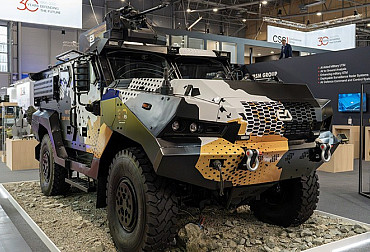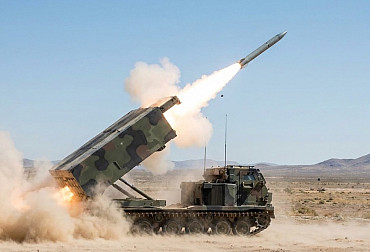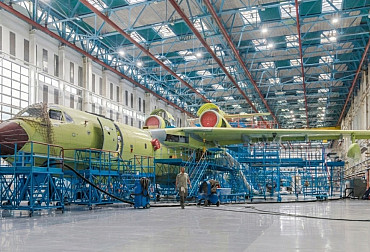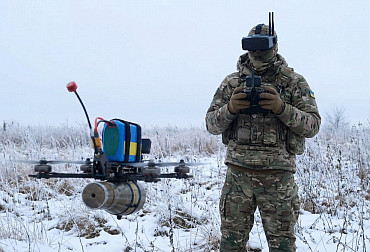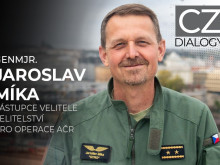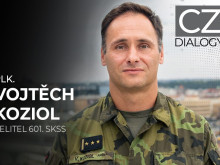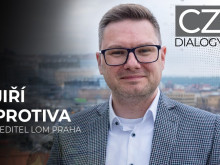Major Aleš Svoboda: Skills from the fighter jet cockpit are highly valued in the space program
Fighter pilot Major Aleš Svoboda is preparing for a historic mission that could take a Czech representative into Earth orbit again in 2027. If all goes well, Svoboda will follow in the footsteps of Vladimír Remek's legendary flight almost fifty years later. Aleš Svoboda, a member of the European Space Agency's (ESA) reserve team of astronauts, is thus becoming a symbol of the Czech Republic's return to the world of manned space flight. His task will be not only to represent the Czech Republic, but also to carry out demanding scientific experiments on board the International Space Station (ISS).
Video: Interview with fighter pilot Major Aleš Svoboda / CZ DEFENCE
"This is a huge opportunity for the Czech Republic. After almost fifty years, we can once again become involved in what forms the backbone of space programs in developed European countries. We see this with our partners in the Visegrad Four – all except Slovakia are very interested in participating in manned space flights," says fighter pilot and astronaut Maj. Aleš Svoboda. His journey into space began thanks to the Czech Republic's membership in the ESA (European Space Agency) at the turn of 2008 and 2009. The agency launched the selection of astronauts four years ago, and it was the first selection process in which Czechs could apply. "For me, it was a long-term ambition linked to my aviation background. So the decision to apply was pretty clear," Major Svoboda confided.
ESA has adopted a new flexible model, under which some astronauts remain with their employers and only transfer to the space agency when a mission arises. Svoboda therefore continues to work at the Czech Air Force Headquarters, where he is involved in the F-35 project and still flies Gripen aircraft, albeit less than before. Preparation for the mission is divided into several phases. Basic astronaut training takes place in Cologne, Germany, and Major Svoboda has already completed two two-month blocks. The third block awaits him next spring. If the Czech national mission is confirmed, mission-specific training will begin, focusing directly on the flight. This will start around six to seven months before launch, once the complete crew is known.
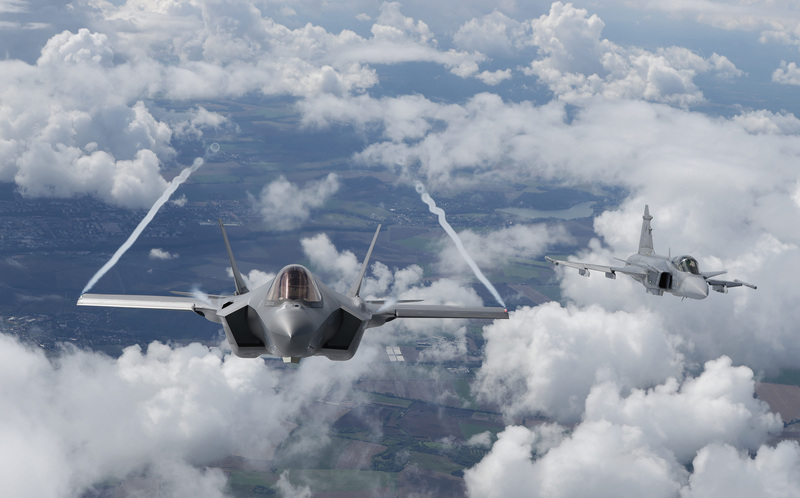
"The preparation is very complex – from familiarizing ourselves with the Crew Dragon spacecraft and the ISS systems to the experiments themselves. For example, fourteen scientific and technological projects to be carried out on the ISS were selected from the Czech Republic alone," says Major Svoboda, adding: "These include research in the fields of nanomaterials and radiation physics, as well as projects based on cooperation with the Masaryk Memorial Cancer Institute." In this case, the role of an astronaut is not only technological, but also very human. "We are the ones doing the final work. We operate experiments, we are lab technicians. We have to be able to communicate effectively with teams on Earth when something doesn't go according to plan. That human flexibility is what gives manned missions added value over automatic probes," emphasizes the Czech fighter pilot and astronaut.
Major Aleš Svoboda will perform several key tasks in space, which can be divided into three main areas. The first is conducting scientific and technological experiments. The main mission of the Czech mission to the ISS will be to carry out 14 selected Czech research and technology projects that have undergone technical evaluation by the European Space Agency. These experiments are in fields such as nanomaterials and nanotechnology, radiation physics, biomedicine and oncology, applied robotics and automation, and research into the effects of microgravity. Although astronauts do not need to understand the detailed theory behind each experiment, they must be able to perform them flawlessly, respond to emergency situations, and communicate effectively with the ground team.
Another area of the mission will be operating the systems of the International Space Station (ISS). Each astronaut must master a certain level of knowledge of all on-board systems and technologies to ensure the operation of the station, such as ventilation, electrical systems, water- and heat-management, emergency procedures, and communication with control centers in Europe (Cologne), the US (Houston), and Russia (Moscow). Cooperation within the crew, which consists of a multi-member international team, is also important, as is the sharing of responsibilities according to specialization and basic health and technical safety.
Svoboda's mission also has a third, equally important aspect, namely its symbolic and educational role. The mission will have a strong educational and popularization dimension. ESA and Czech institutions are already preparing programs for schools and students. Educational projects will enable pupils and students to participate in experiments that Major Svoboda will conduct on the ISS. The astronaut will continuously record videos and posts for the public and schools during the mission.
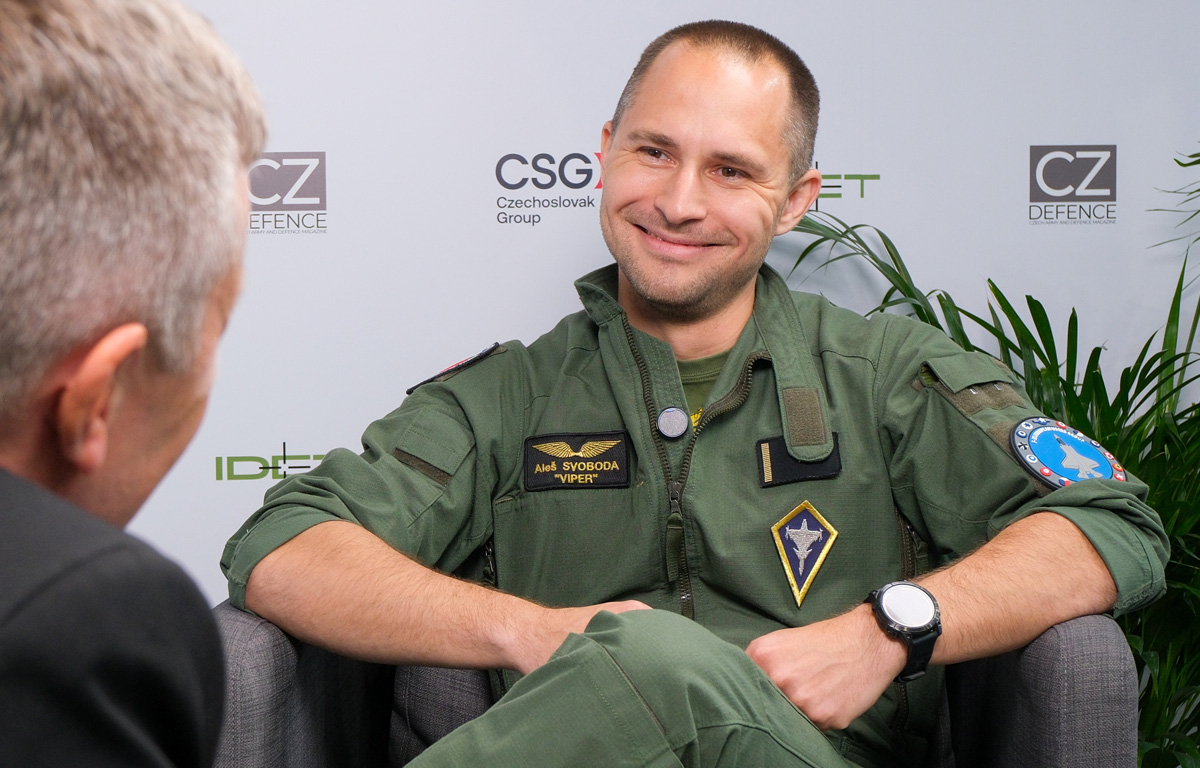
According to Svoboda, experience in tactical aviation is a huge advantage. “There are many parallels, whether in terms of mental demands, decision-making under stress, teamwork, or working in an international environment. There were five of us in our training, and three of us were pilots. The skills learned in the cockpit of a fighter jet are highly valued in the space program,” emphasizes Major Aleš Svoboda.
One of the mission's goals is also to inspire the younger generation. “I believe it will be an impetus not only for Czech industry, but also for students, teachers, and schools. Educational projects are already involved in the program. For example, children will be able to participate in experiments that will take place directly on the ISS,” adds Svoboda.
And what will Major Svoboda take with him into space as a personal symbol? The answer reflects his sporting spirit: “We talked about how it would be nice to take something simple that people would immediately understand and associate with the Czech Republic. I'm close to sports, and the Czech Republic is a hockey country—maybe a puck with the mission logo would be a great symbol.”
If everything goes according to plan, the mission should take place in 2027. The launch is scheduled to take place from the Kennedy Space Center in Florida. The selection of the mission contractor is currently underway through a NASA tender. However, the entire program will be managed by the European Space Agency.
If you are interested in how Major Aleš Svoboda is preparing for his flight into space, listen to the entire interview at the beginning of this article.











